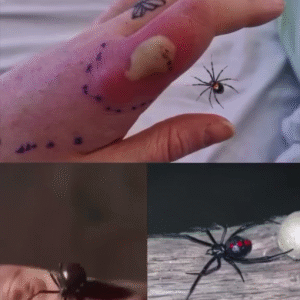After explaining his symptoms, the doctor inquired whether Xiao Liang consistently drooled in the same direction. He then advised him to undergo a brain CT scan to rule out potential concerns. Shockingly, the results revealed early signs of blocked cerebral blood vessels. Fortunately, because the problem was detected early, Xiao Liang was able to take preventive measures, reducing his risk of more serious conditions such as cerebral infarction and cerebral hemorrhage.
Where Does Saliva Come From?
Saliva production is regulated by the autonomic nervous system, meaning it occurs involuntarily, much like the heartbeat. The salivary glands, which are responsible for producing saliva, are divided into two types: major salivary glands and minor salivary glands. The three pairs of major salivary glands include:
- Parotid glands (located near the ears)
- Sublingual glands (under the tongue)
- Submandibular glands (under the jaw)
Additionally, numerous minor salivary glands are dispersed throughout the oral mucosa.
Saliva plays a crucial role in maintaining oral health. It not only keeps the mouth moist but also helps disinfect, cleanse the oral cavity, and aid digestion. On average, a healthy adult produces approximately 1 to 1.5 liters of saliva per day, with an hourly output of about 30 ml.
Saliva production typically increases during meals or when the brain’s nervous system is stimulated. However, certain factors such as mouth breathing, stress, fatigue, and improper sleeping positions can also contribute to drooling while sleeping.
Why Do Adults Drool While Sleeping?
Drooling is common among children due to underdeveloped oral muscle control. However, if an adult suddenly starts drooling frequently during sleep, it could be an indicator of an underlying health condition. Here are six possible medical reasons why this may occur:
1. Oral Diseases
Conditions such as pharyngitis, gingivitis, and maxillofacial inflammation can overstimulate the salivary glands, leading to excessive saliva production. Additionally, dental issues like crooked, loose teeth or poorly fitting dentures can also contribute to drooling. If the issue stems from dental misalignment, drooling may improve after orthodontic treatment.
2. Facial Paralysis
Facial paralysis affects the muscles on one side of the face, leading to asymmetry in muscle strength. This makes it difficult to retain saliva, causing excessive drooling both while awake and asleep. If drooling is accompanied by symptoms like crooked mouth corners or difficulty closing one eye, seeking immediate medical attention is crucial.
3. Gastroesophageal Reflux Disease (GERD)
Gastroesophageal reflux disease occurs when stomach acid flows back into the esophagus, irritating the digestive tract. This condition triggers an increased salivation reflex, leading to drooling. Other symptoms of GERD include:
- Acid reflux
- Heartburn
- Chest pain
4. Parkinson’s Disease
In Parkinson’s disease, the body’s ability to swallow saliva properly deteriorates, causing excessive drooling. Additionally, nerve damage can lead to an overproduction of saliva, further worsening the issue.
5. Cerebral Thrombosis (Stroke Risk)
If a blockage occurs in the cerebral blood vessels, it can impair the muscles responsible for swallowing. This loss of control can cause drooling, particularly during sleep. Warning signs include:
- Persistent drooling in one direction
- Mouth asymmetry (crooked corners of the mouth)
- Difficulty closing one eye properly
These symptoms indicate a high risk of stroke and require urgent medical attention.
6. Arteriosclerosis (Hardening of the Arteries)
Atherosclerosis reduces blood flow to the brain, leading to oxygen deprivation and muscle relaxation, which can affect swallowing function. Individuals with risk factors such as high blood pressure, high cholesterol, and diabetes should be particularly cautious.
How to Prevent and Reduce Drooling While Sleeping
If excessive drooling isn’t linked to an underlying medical condition, there are a few simple lifestyle changes that can help:
1. Adjust Your Sleeping Position
- Sleeping on your back can help prevent saliva from pooling in one area.
- Using a U-shaped neck pillow can provide better support and reduce discomfort.
- Avoid sleeping on your stomach, as this can cause saliva to leak out more easily.
2. Maintain Good Oral Hygiene
- Brush your teeth twice daily and rinse your mouth after meals.
- Use fluoride toothpaste and dental floss to remove plaque buildup.
- If you have dental misalignment or poorly fitted dentures, consult a dentist for adjustments.
3. Check for Medication Side Effects
Certain medications may increase saliva production. If you suspect your medication is causing excessive drooling, consult your doctor about possible alternatives. However, do not stop or change your medication without medical advice.
Final Thoughts
While occasional drooling during sleep is usually harmless, persistent and excessive drooling in adults should not be ignored. It could be an early warning sign of an underlying neurological, digestive, or vascular condition. If you notice frequent drooling accompanied by other symptoms like facial asymmetry, acid reflux, or difficulty swallowing, it’s important to seek medical evaluation as soon as possible.


